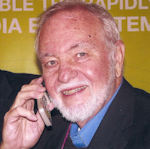Download this article in PDF format.
Practically every electronic product today contains one or more analog-to-digital converters (ADCs). As an engineer, you have no doubt already encountered the ADC in a design project. If not, then you will eventually.
ADCs are tricky—they have some design quirks that must be addressed in order to achieve design success. Where do you learn the fine points of ADC design? Many get it from experience. Others are lucky to learn from a colleague or mentor. Textbooks can be a big help with the basic theory, but sources of the real-world application particulars are harder to come by.
Not any longer. Texas Instruments offers some attractive learning alternatives about ADCs. And these are things that you definitely didn’t learn in college.
TI Precision Labs
The TI Precision Labs offers an on-demand ADC curriculum that pairs theory and applied lab exercises to deepen the technical expertise of experienced engineers and accelerate the development of those early in their career. The ADC curriculum consists of a mix of videos, multiple-choice quizzes, and short answer exercises. The main topics are:
- Introduction to Analog to Digital Converters. Covers dc and ac specifications and input types.
- ADC Drive Topologies. Gets into how to determine the linear range of an ADC and front-end driver design with differential and instrument amplifiers.
- Error and Noise. Covers statistical analysis of errors and determining the total noise.
- AC Specifications. Addresses frequency-domain-related topics, fast Fourier transform (FFT), sampling and filtering for signal-to-noise ration (SNR) and total harmonic distortion (THD), and anti-aliasing filters.
- SAR ADC Input Driver Design. Front-end design is the emphasis, including driver amplifier and component selection.
- Low-Power SAR ADC System Design. Covers power scaling.
Since ADC design also typically involves related op-amp use and selection, you may be interested in learning more about that. TI Precision Labs offers a training series on op-amp design.
The Analog Engineer’s Calculator
The Analog Engineer’s Calculator is a PC-based tool designed to speed up many of the repetitive calculations used regularly by analog-circuit design engineers. This software provides a graphical interface with a list of various common calculations covering a wide range of design needs. The tool covers both ADCs and digital-to-analog converters (DACs). Some of the features include noise calculations, gain selection, filter configurations, printed-circuit-board (PCB) parasitic calculations, and passive component selection.
In addition to being useful as a standalone tool, this calculator pairs well with the concepts described in the Analog Engineer's Pocket Reference.
Choosing the Best ADC Architecture for Your Application
If you’re at that design stage where you need to choose an ADC architecture, the available TI training materials can provide assistance. The company’s four-part video training series will help you choose the best ADC architecture for your application. It focuses on the differences between the architectures of successive-approximation-register (SAR) types of ADCs, including delta-sigma ADCs.
Part 1 is an overview of the many different ADC architectures and highlights the advantages of each. Part 2 gets into the details of SAR-type ADCs. Parts 3 and 4 zero in on the delta-sigma ADC, explaining how this unusual converter works and its need for a digital filter. This is a quick way to get up to speed on ADC usage. It’s definitely worth the time investment.
Keeping up-to-date is a priority for engineers in these fast-changing times. Why not take advantage of resources like these to fine-tune and expand your ADC knowledge, so that you can apply it now as well as down the road?

